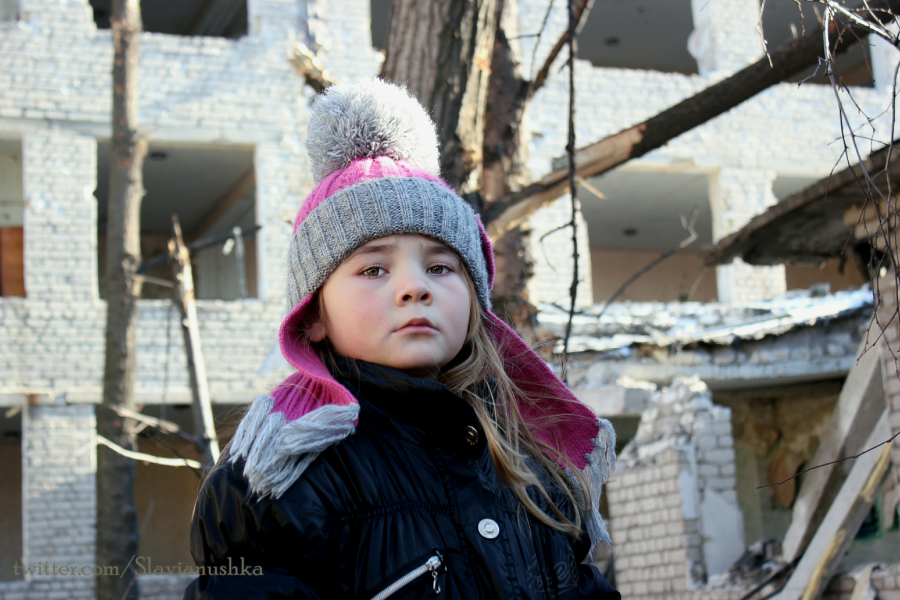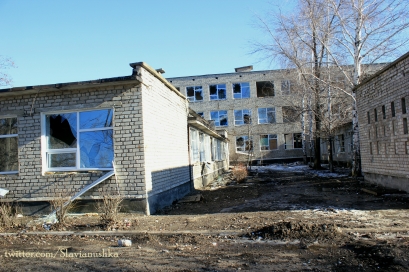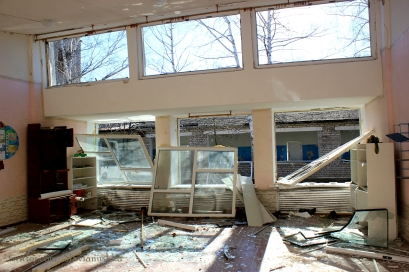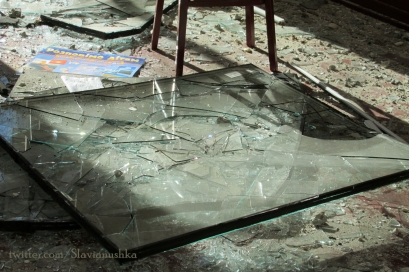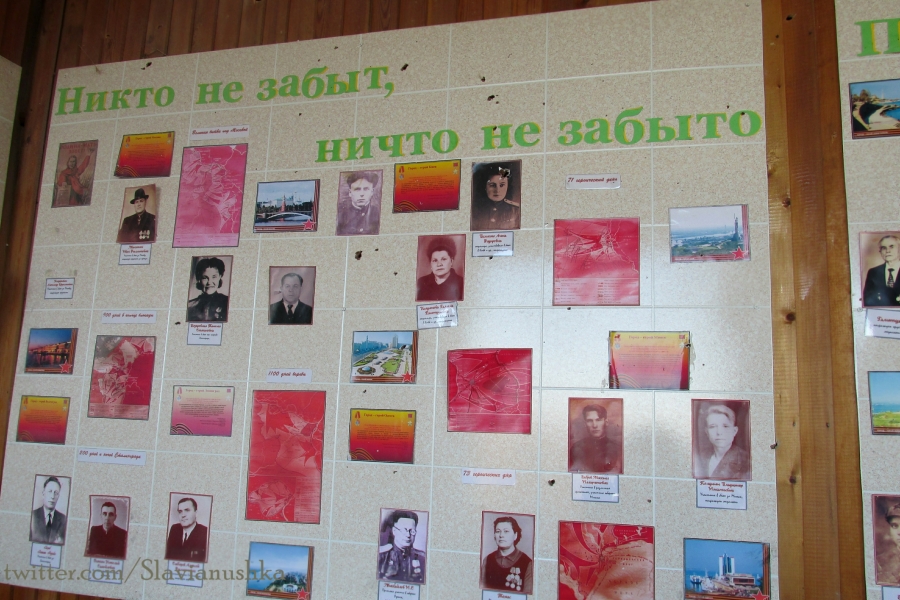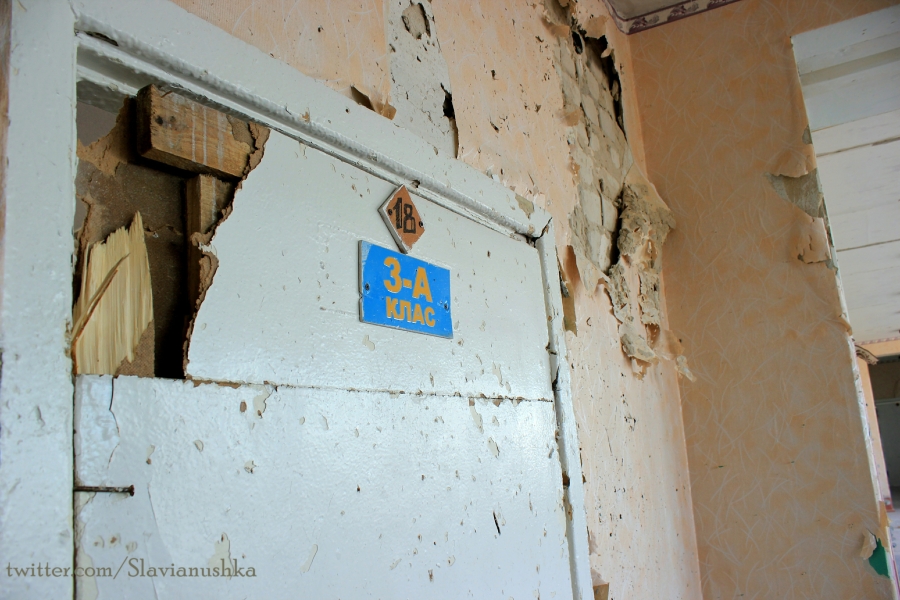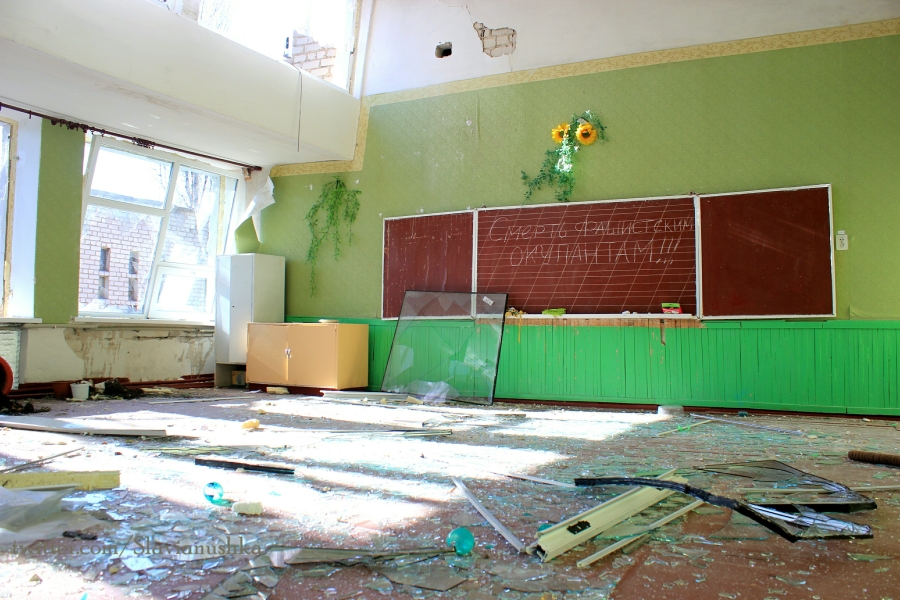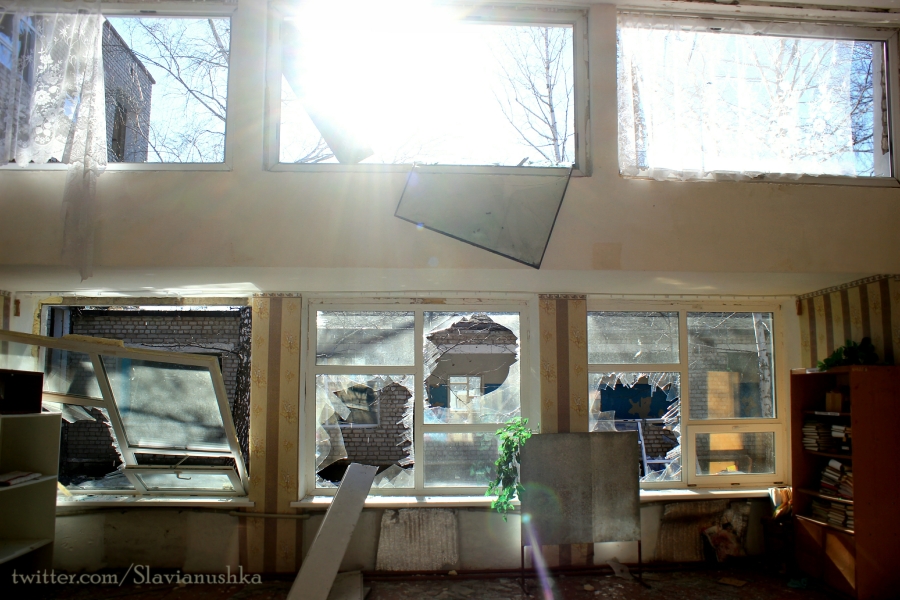Preamble: It will be recalled that last October, Petro Poroshenko contrasted the prospects for Ukrainians with those for people from the Donbass during a speech in Odessa. In particular, the President promised: “Our children will go to schools and kindergartens, while theirs will be holed up in basements!” Thus far, the Ukrainian government has been doing its best to keep its word. Here is one of the children sitting in a basement in accordance with the Ukrainian President’s will.
Photos and video footage by Olga Luzanova
Article edited by @GBabeuf
The Acting Commandant of the Perevalsk Commandant’s Office offered me a short tour of a little town which just happened to be in the immediate vicinity of the front-line. The Ukrainian forces had been firing towards the residential district of the town right up until the day when the Militia had mopped up Debaltsevo. We took the road which I knew very well. We drove through the town where I could see the consequences of the shelling all around. We approached the school from its rear and saw there a football pitch with a huge crater in the middle of it. Then we saw another crater from an Uragan missile near the school.
A third missile evidently reached the building.
We found quite a large shell fragment, resembling a crumpled aluminium pail, inside the building, but the distinct marking number it bore proved that it was part of an Uragan missile.
The school had not a single window left intact on the side facing towards Debaltsevo. Evidently, it had not been random fire—we could see that all the strikes on the school were direct hits.
We walked round the school—its façade, which faced the direction of territory controlled by the Militia, remained almost undamaged. Incidentally, this school used to be one of the most beautiful in the Perevalsk region: it had won a grant for renovation two years ago and was then completely refurbished.
Now, the image of the book with hammer and sickle and the engraved phrase “Peace to the World” adds more sadness to the whole scene.
The condition of the building inside was no less terrible: overthrown pieces of furniture, broken window frames. splinters of glass and crumbled plaster on the floor, fragments of wood and brick everywhere, everything slashed and holed.
In a half-ruined corridor there were stands with portraits of the Heroes of the Great Patriotic War, “killed” once again by Ukrainian bullets. “Nobody has been forgotten, nothing has been forgotten.”
I should like to note that respect to the values of memory has always been a very important part of our school education. In the light of Ukraine’s conflict, one of the main tools currently employed in Ukrainian schools is the misrepresentation of history—in particular, replacing the names of Soviet heroes with the names of Banderites. Yet people in Donbass do remember their true history: we learned it not only at school, but also from our grandparents, who saw this history with their own eyes and retold it to us again and again, and we shall never forget it.
I heard a child’s voice outside—a little girl was coming up with a few adults, pointing in the direction of the worst damaged part of the school, saying: “My class was there.” Seven year old Vika was very sad about her school; almost all her friends have left the town, and now, she and her family may have to leave too:
I entered the classroom where Vika and the other first form pupils used to study. Again, the usual scene: pieces of broken glass everywhere, destroyed windows, smashed furniture, holed walls… Books left in a bookcase…
Someone had written on the blackboard “Death to the fascist invaders.”
